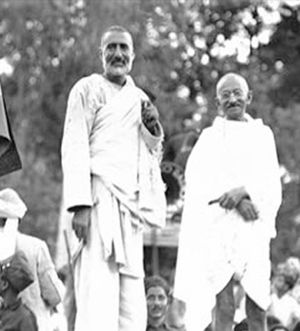Gandhism

Gandhism is a set of ideas that describes the inspiration, vision, and the life work of Mohandas K. Gandhi. It is especially connected with his contributions to the idea of nonviolent resistance, sometimes also called civil resistance.
The word "Gandhism" also includes what Gandhi's ideas, words, and actions mean to people around the world and how they used them for guidance in building their own future.
However, Gandhi did not approve of the term "Gandhism". As he explained:
There is no such thing as "Gandhism" and I do not want to leave any sect after me. I do not claim to have originated any new principle or doctrine. I have simply tried in my own way to apply the eternal truths to our daily life and problems...The opinions I have formed and the conclusions I have arrived at are not final. I may change them tomorrow. I have nothing new to teach the world. Truth and non-violence are as old as the hills.[1]
Without a "Gandhism" approved by Gandhi himself, there is a way of thinking that one has to get what Gandhism stands for, from his life and works. One such deduction is a philosophy based on "truth" and "non-violence" in the following sense. First, one should recognize and accept the truth that people are different at all levels ("truth"). Second, one should never resort to violence to settle built-in differences between human beings at any level: from between two people to two nations to two races or two religions ("non-violence").
References
[change | change source]- ↑ Gwilym Beckerlegge, World religions reader, 2001
Books on the topic
[change | change source]- Louis Fischer, The Essential Gandhi: An Anthology of His Writings on His Life, Work, and Ideas, New York, Vintage, 2002, ISBN 1400030501.
- David Hardiman, Gandhi in His Time and Ours: The Global Legacy of His Ideas, Columbia University Press, 2004, ISBN 0231131143.
- Homer Jack, The Gandhi Reader: A Sourcebook of His Life and Writings, Grove Press, 1956, ISBN 0802131611.
- Ramesh Mashelkar, Timeless Inspirator-Reliving Gandhi, Sakal Papers, 2010, ISBN 9789380571485.
- Anil Dutta Mishra, Fundamentals of Gandhism, New Delhi, Mittal Publications, 1995, ISBN 9788170996064.
- Shriman Narayan, Relevance of Gandhian economics, Navajivan Publishing House, 1970, ISBN 9788171009862.
- Narendar Pani, Inclusive Economics: Gandhian Method and Contemporary Policy, Sage Publications, 2002, ISBN 9780761995807.
- Rashmi Sharma, Gandhian economics, Deep and Deep Publications, 1997, ISBN 9788171009862.
- Mark Shepard, Gandhi today: a report on Mahatma Gandhi's successors, Shepard Publications, 1987, ISBN 9780938497042.
- Thomas Weber, Gandhi, Gandhism and the Gandhians, Roli Books, 2006, ISBN 8174364684.
